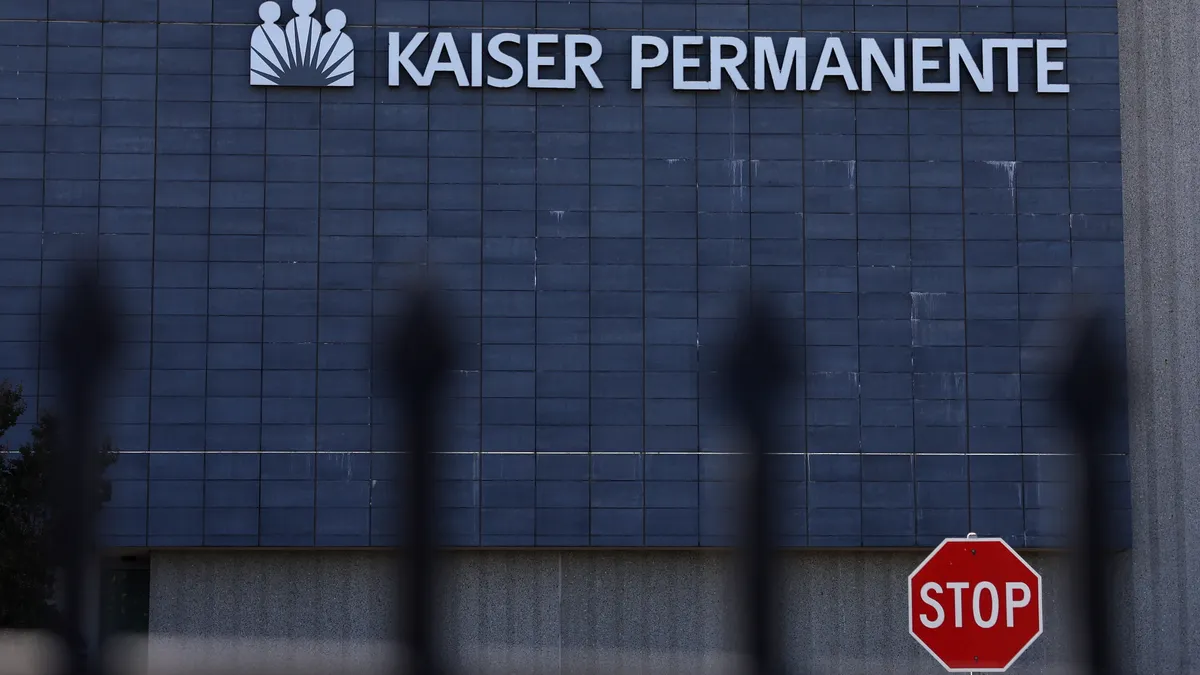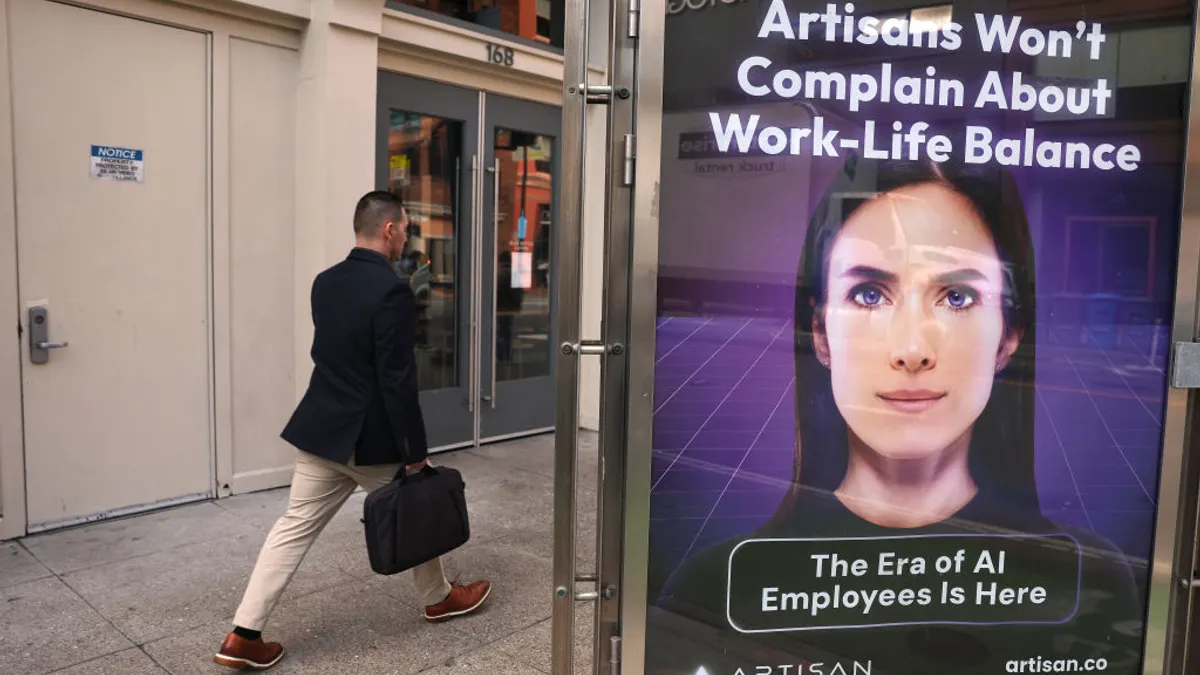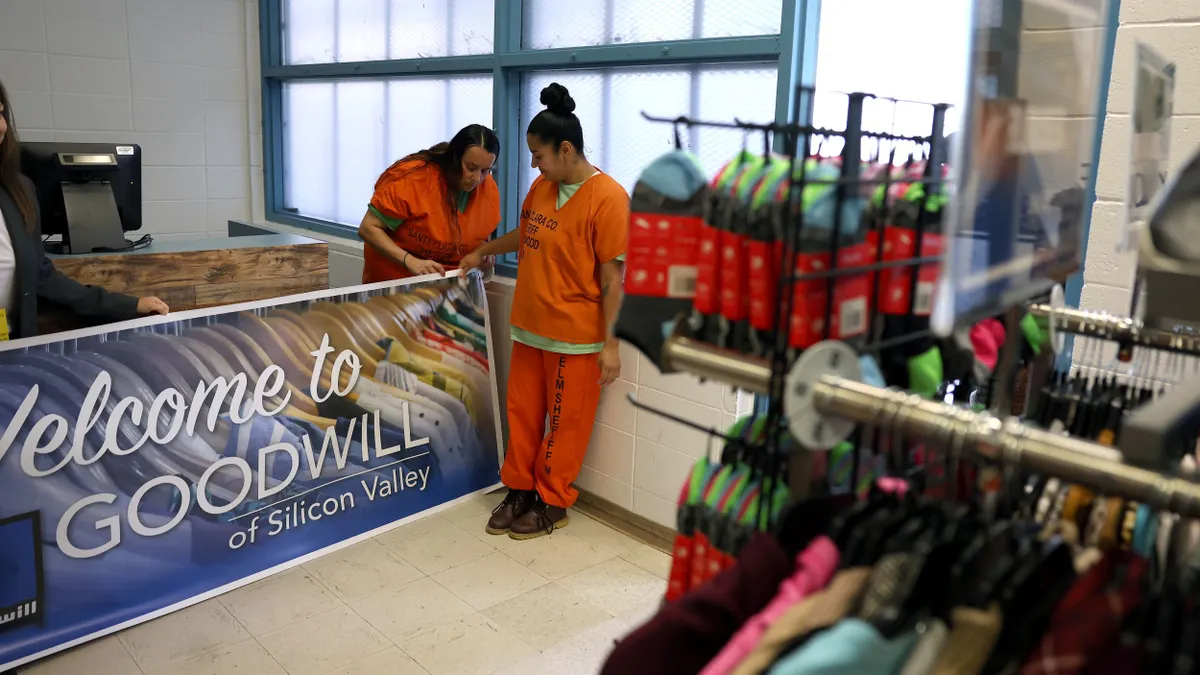Leaders of the Coalition of Kaiser Permanente Unions issued a 10-day unfair labor practice strike notice to Kaiser executives Friday, announcing that more than 75,000 healthcare workers in five states and Washington, D.C. will hold a three-day strike from Oct. 4 to 6 unless the health system reaches a deal with the union by Sept. 30.
Parties had hoped to reach a deal during final hour contract negotiations, which occurred in San Francisco on Thursday and Friday. However, the union said the bargaining sessions had failed to achieve an acceptable result.
“Kaiser executives can stop the unfair labor practice strike from happening if they return to the table and stop bargaining in bad faith,” Renée Saldaña, spokesperson for SEIU-United Healthcare Workers West, the largest union in the coalition, told Healthcare Dive. “Otherwise, the strike will happen on Oct 4-6.”
According to Saldaña no further negotiations are scheduled, however the coalition members are ready to return to the bargaining table and negotiate at any time.
In a statement to Healthcare Dive, Steve Shivinsky, director of national media relations for Kaiser Permanente, said, “For the last 26 years of our historic labor-management partnership, we have reached agreements with the Coalition every time, with no strikes. A strike notice does not mean a strike will happen.”
He added, “to be clear, we will continue to bargain in good faith until we reach a fair and equitable agreement that strengthens our position as a best place to work and ensures that the high-quality care our members expect from us remains affordable and easy to access.”
Kaiser serves more than 12 million people at 39 hospitals and 622 medical offices in California, Colorado, Oregon, Washington, Hawaii, Georgia, Washington, D.C., Maryland, and Virginia, according to its website. The coalition, which represents twelve local unions, and Kaiser agree that coalition members account for about 40% of Kaiser staff.
The scale of the strike, should it occur, is significantly larger than the next largest industry work stoppage, according to data from the Labor Department’s U.S. Bureau of Labor Statistics going back to 1993. In 2018, 53,000 California healthcare workers organized by the American Federation of State, County and Municipal Employees (AFSCME) Local 3299 engaged in a three-day strike.
Kaiser said it will be ready for the work stoppage. Shivinsky told Healthcare Dive by email on Tuesday that the health system takes threats to disruptions of care “seriously,” and added on Friday that, “our top priority is caring for our members and patients, and we have plans in place to ensure we can continue to provide, high-quality care should a strike actually occur.”
Union members said the strike has the potential to put the Kaiser system in a “stranglehold,” noting that the coalition represents workers across multiple critical functions.
“We have workers as soon as you walk in the front door — the people who check you in, pharmacy workers, lab workers, energy workers, our medical assistants, licensed practical nurses, the people who make your appointments over the phone, the people who pay your bills behind the scenes to other healthcare providers,” Maria Jostes, a workplace safety consultant and member of SEIU Local-105, told Healthcare Dive. “Those are all union members.”
Whether or not the strike occurs, Adrienne Eaton, dean of the School of Mangement and Labor Relations at Rutgers University, told Healthcare Dive that the coalition appeared to be “trying to keep Kaiser guessing. Kaiser will have to spend money on prepping for the strike even if it doesn't happen.”
The coalition has been slowly marching toward this moment since August, when local unions began votes to authorize a strike should contract negotiations fail. In the weeks since an “overwhelming majority” of members approved the strike, according to Caroline Lucas, executive director of the coalition.
Representatives from Kaiser Permanente and the coalition told Healthcare Dive that they entered the final bargaining sessions committed to negotiating a contract ahead of the current contract’s Sept. 30 expiration date.




















